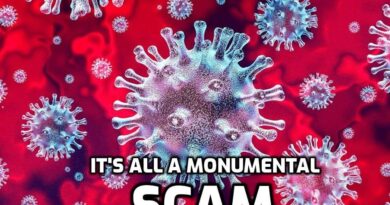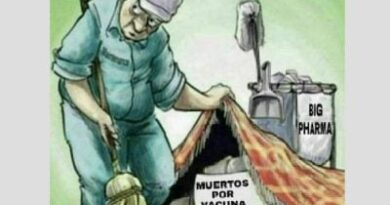US renews calls for investigation into origins of Covid-19
The Biden administration has renewed US calls for a fuller investigation into the origins of Covid-19 after a report last weekend bolstered the theory that the disease was released accidentally from a laboratory in the Chinese city of Wuhan.
Andy Slavitt, one of the US president’s coronavirus advisers, on Tuesday said the investigation carried out earlier this year by the World Health Organization had not done enough to explain how the disease first started spreading among humans.
He told reporters: “We need to get to the bottom of this and we need a completely transparent process from China. We need the WHO to assist in that matter. We don’t feel like we have that now.”
China has angrily rejected US calls for an investigation into the possibility that the Covid virus escaped from the Wuhan Institute of Virology, a theory that state media described as “a conspiracy created by US intelligence agencies”.
Slavitt was speaking after a report in The Wall Street Journal claimed that three scientists at the Wuhan lab fell ill with Covid-19-like symptoms in November, a month before the first official case was reported.
Scientists working for the WHO reported in March that the virus was “extremely unlikely” to have escaped from the lab and was far more likely to have spread from animals to humans.
Some scientists were quick to criticise that report, however, which was facilitated by China, while Tedros Adhanom Ghebreyesus, the WHO’s director-general, admitted it was not extensive enough. Tedros said WHO scientists had encountered difficulties in accessing “raw data” from China, which has always denied the lab-leak hypothesis.
Anthony Fauci, the director of the National Institute of Allergy and Infectious Diseases, on Tuesday said he still believed the disease was more likely to have spread from animals to humans.
But he added: “But, we don’t know 100 per cent the answer to that . . . [and] it’s imperative that we look and we do an investigation.”
Fauci was also targeted by Chinese state media. He was “fanning a huge lie against China”, wrote Hu Xijin, editor of the Global Times, a nationalist tabloid published by the Communist party’s official People’s Daily newspaper. The theory of a lab accident is “a conspiracy created by US intelligence agencies and the media outlet to slander China”, he added. “Is it a coincidence that Fauci repeated such lines?”
The World Health Assembly, which sets WHO policy, is holding its annual meeting in Geneva, at which members are expected to discuss the next phase of the organisation’s investigation.
The claims in the WSJ, meanwhile, have refocused attention on the lab-leak theory. The newspaper reported that a previously undisclosed US intelligence report claimed the three researchers at the Wuhan lab had become so sick in 2019 that they sought hospital care. On Monday the White House said it had “no means” to verify the report.
On Monday, Zhao Lijian, a spokesman for China’s foreign ministry, rejected the intelligence report’s accuracy and said that no staff at the Wuhan Institute of Virology had been infected before December 2019.
“What is the real purpose for the US to continue to play up the so-called lab leak theory? Does it really care about the origin-tracing of the virus or just want to divert attention?” he asked.
Researchers at the Wuhan lab last week released a research paper arguing that the virus strains found in bats in south-west China were “just the tip of the iceberg” for potential ancestors of Sars-Cov-2. They added that the strains were unlikely to be ancestors for the virus without first infecting an intermediate animal host.
Shi Zhengli, the Wuhan Institute of Virology’s leading coronavirus expert whose work on bat viruses has been the focal point of the lab theories, was one of the authors.
The bat viruses studied in the paper, which has not been peer reviewed, lacked the ability to bind with proteins known as human ACE2 receptors, which are an important part of Sars-Cov-2’s ability to infect people, and thus “pose little spillover potential to human without future adaptation”, the authors wrote.
Latest coronavirus news
Follow FT’s live coverage and analysis of the global pandemic and the rapidly evolving economic crisis here.
*** This article has been archived for your research. The original version from Financial Times can be found here ***

